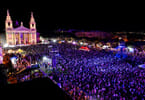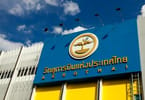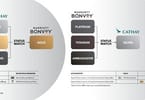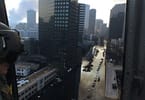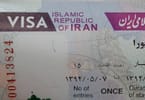Need plastic surgery but you cannot afford American or European fees? Why not go to Damascus, Syria.
Damascus has seen a massive boom in plastic surgery tourism as the devaluation of the Syrian pound has made the destination extremely popular for those who want to save money on expensive surgeries.
A patient said: “Fractional Laser Treatment I got fractional laser treatment for my acne scars. All three sessions went fine, and the results were nice, especially compared with downtime which was almost none. I’m delighted with the result of my laser hair removal.”
This incredible story was published in Gulf News this morning:
There are no official numbers available from the Syrian Ministry of Health in this regard, but according to doctors still operating in Damascus, most of the tourists are coming from Iraq, Lebanon, Oman and Algeria.
Zeinab Khalidi, a 46-year old architect from Baghdad University is one of them, who recently came to Damascus for surgery.
Speaking over the telephone with Gulf News from Iraq, Zeinab said: “People warned me against making the journey, saying that Damascus was unsafe. That’s funny to hear when you are living in a city like Baghdad, where despite the façade of normalcy, life is becoming increasingly difficult and dangerous.”
Against all odds Zeinab came to Damascus for a nose job last August, saying: “All included, with travel expenses, hospital, post-operation medication and doctor’s fee, it cost me less than $800 (Dh2,940).”
Indeed, Damascus remains incredibly affordable for foreigners, due to the sharp devaluation of the Syrian pound against the US dollar.
Six years ago, the exchange rate for $100 was 5,000 Syrian pounds but now it is 55,000 Syrian pounds.
Khaled Mansour, a Paris-trained plastic surgeon who runs his clinic in Al Afif area of Damascus, told Gulf News that the hourly hospital operation theatre rate in the Syrian capital, which surgeons pay upfront to any hospital, currently stands at less than $100.
In Lebanon, it stands at $1000-1500 an hour, explaining why it’s possible to charge less for surgery in Damascus.
“Even before the war started, we were the cheapest and best in the region” said Mansour, who carries out 7-9 operations per week.
“But unfortunately, the war has forced the country’s finest doctors to leave and seek better opportunities aboard,” he said, adding that around 50 per cent of them have already left. “American sanctions have had a detrimental impact on the Syrian medical sector,” Mansour said.
American and EU sanctions have prevented major French and German companies from selling medical equipment and pharmaceuticals to the Syrian market.
An MRI machine costs $2 million. Before the war, the return on the investment could be realised in around three years but now it will take up to 30 years to do so.
Reem Al Ali, a computer programmer from southern Lebanon, said: “I went to Syria for bypass surgery last year, on the advice of a friend who had been operated upon there in 2014. I stayed in an A-class hospital for $60 per day. In Beirut, it would have cost me no less than $1000-1500 per day. I am very satisfied and I still follow up with my doctor via on WhatsApp.”
Al Ali said he met three doctors in Damascus out of which two had studied in US and one in France. “You wouldn’t expect this in a country living through a civil war.”
Doctors complain that their charges are comically low but have to pay exorbitant price for various services. They say the health ministry forces them not to charge more than 700 Syrian pounds ($1,2) as clinic fee. While some doctors do abide by it, fearing penalties and fines, many do not and charge up to $10, which is very high by Syrian standards.
Due to major power cuts in the Syrian capital, which can continue for four hours in posh residential districts of Damascus, all hospitals have installed giant power generators. These generators run on diesel or benzene, the two fuels that have to be bought in the black market.
The price of benzene has gone up by 450 per cent during the last five years, and currently sells for 225 Syrian pounds per litre.
Five years ago, state-subsidised gasoline was sold for 50 Syrian pounds per litre and was readily available in a country that produced its own oil, but now all oilfields are in the hands of Daesh. Diesel price has also gone up from 135 Syrian pounds per litre to 160.
Labour, however, remains hauntingly cheap, where the average salary of a good nurse currently stands at $100 per month, even after a presidential decree issued last year, raised wages for state employees by 7,500 Syrian pounds.
WHAT TO TAKE AWAY FROM THIS ARTICLE:
- Khaled Mansour, a Paris-trained plastic surgeon who runs his clinic in Al Afif area of Damascus, told Gulf News that the hourly hospital operation theatre rate in the Syrian capital, which surgeons pay upfront to any hospital, currently stands at less than $100.
- Damascus has seen a massive boom in plastic surgery tourism as the devaluation of the Syrian pound has made the destination extremely popular for those who want to save money on expensive surgeries.
- Before the war, the return on the investment could be realised in around three years but now it will take up to 30 years to do so.



